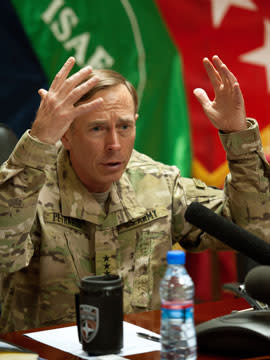 The Envoy
The EnvoyU.S. accuses Iran of “secret deal” with al Qaeda financier cell

The U.S. Treasury Department today announced that it has designated as terrorists six members of an al Qaeda network whose head operates in Iran. This action marks the first time the U.S. government has so explicitly accused Iranian authorities of collaborating with an al Qaeda cell, which it alleged serves as a financial pipeline between al Qaeda fundraisers in the Persian Gulf and operatives in Pakistan and Afghanistan.
Notable, however, is that three of the men designated today are based in Qatar and Kuwait, which were not similarly accused by the Treasury Department with harboring al Qaeda. Indeed, only one of the six new designees, Ezedin Abdel Aziz Khalil, appears to be based in Iran.
"By exposing Iran's secret deal with al Qaeda allowing it to funnel funds and operatives through its territory, we are illuminating yet another aspect of Iran's unmatched support for terrorism," Under Secretary of Treasury for Terrorism and Financial Intelligence David Cohen said in a Treasury Department press release Thursday.
The six figures whose designations were unveiled today are members of an al Qaeda cell headed by Khalil, the Treasury Department said. It described the Syrian-born Khalil as a prominent Iran-based al Qaeda facilitator, "operating under an agreement between al Qaeda and the Iranian government," who has been in Iran since 2005.
The two Qatar-based figures designated are: Salim Hasan Khalifa Rashid Al-Kuwari -- said by Treasury to have "provided hundreds of thousands of dollars in financial support to al-Qaeda" -- and Ghanim Mafuz Muslim Al-Khawar. The Kuwait-based designee is 'Ail Hasan 'Ali al-'Ajmi, said by Treasury to have "collected money from individuals in Gulf countries and provided these funds to AQI [al Qaeda in Iraq] facilitators as well as to the Taliban."
A fourth designee, Atiya Abd al-Rahman, originally from Misrata, Libya and known by his al Qaeda moniker "al Libi," is a senior al Qaeda commander based in Pakistan's tribal areas.
Though the United States announced two previous rounds of designations of al Qaeda members based in Iran in 2009, prior to today's announcement it had not so definitively accused Iran of actively permitting the country to be used by al Qaeda money men.
Incoming CIA Director Gen. David Petraeus, in testimony to Congress last year, highlighted al Qaeda's use of Iran as a "facilitations hub," but described Iran's behavior towards the group as "unpredictable," noting it "periodically disrupted" the network.
Some counter-terrorism analysts stressed such designations as those unveiled today are not made casually, and take considerable time and review to be worked through the U.S. bureaucratic process.
That said, "let's not get hysterical," said former Deputy Assistant Secretary of the Treasury for Intelligence Matthew Levitt, in an interview with the Envoy:
Iran "sees it in its interest to facilitate some al Qaeda activity, even as it recognizes that as an extremist Sunni organization, it [al Qaeda] does not have a lot of love for Shia Islam," which is predominant in Iran, Levitt, with the Washington Institute for Near East Policy, said.
Al Qaeda's financing has been squeezed, and the U.S. government is trying to further restrict its funding flows from the Persian Gulf, particularly in Kuwait and Qatar, Levitt said.
"Some of the biggest concerns continue to be [al Qaeda's fundraising from] Kuwait and Qatar," Levitt said. "It's not rocket science" that with its usual pipelines for cash pressed, "adversaries are finding other ways to move money."
As to why the U.S. government would make the focus of today's announcement Iran and not the al Qaeda financiers apparently able to operate from Qatar and Kuwait, Levitt said the U.S. government has long taken up the matter more quietly with those countries.
